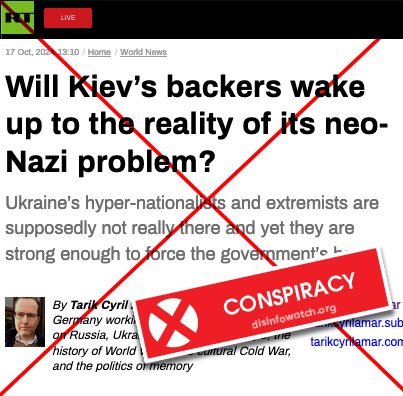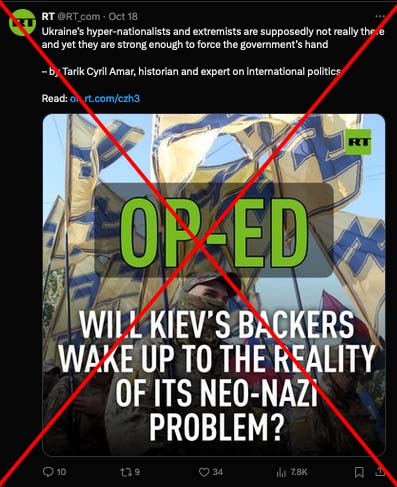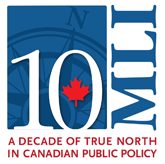 The Claim:
The Claim:
The RT article asserts that Ukraine has a significant neo-Nazi problem, suggesting that neo-Nazi ideologies are widespread within Ukrainian society and have substantial influence over the country’s government and military. It implies that far-right extremist groups are not only present but are actively shaping Ukraine’s policies and actions, particularly in the context of the conflict with Russia. This has been a consistent narrative in Kremlin information operations and used to justify its invasion of Ukraine in 2022.

The Facts:
Presence of Far-Right Groups:
The Azov Regiment was originally a volunteer militia and has been incorporated into Ukraine’s National Guard. While it’s true that some members held nationalist views, the unit operates under government command, and its size is relatively small compared to the entire Ukrainian military. Like many Western democratic countries, Ukraine has fringe groups with extremist ideologies, but they represent a minority and do not hold any significant power.
2. Political Presence:
Far-right parties in Ukraine have performed poorly in national elections. In the 2019 parliamentary elections, the combined far-right groups failed to secure any seats, indicating minimal public support, unlike Russia, Italy, Germany, Austria, Hungary, France, Holland and other European states, where far-right nationalists control significant numbers of parliamentary seats.
Furthermore, the Ukrainian government officially condemns neo-Nazism and has taken steps to curb extremist activities.
3. International Assessments & Low Level of Antisemitism:
International bodies like the OSCE have not reported a widespread neo-Nazi problem in Ukraine. Ukraine has a significant Jewish population, and incidents of Antisemitism are relatively low. In fact, Ukraine elected Volodymyr Zelensky, a Jewish president, in 2019.
Narrative Context:
The portrayal of Ukraine as a nation overrun by neo-Nazis has been a recurring theme in Russian state disinformation campaigns. Ukrainian diaspora groups have been victims of this narrative, which is intended to incite hate, intimidate, discredit and silence Canadians of Ukrainian heritage.
This narrative serves several objectives:
1. Justification of Military Actions:
By framing its intervention as a fight against neo-Nazism, Russia seeks to legitimize its actions domestically and internationally.
2. Undermining Ukrainian Sovereignty:
Casting the Ukrainian government as extremist helps delegitimize it in the eyes of the world, weakening international support.
3. Domestic Propaganda:
The narrative reinforces nationalistic sentiments within Russia, rallying the populace around the government’s policies.
4. Deflection of Criticism:
Emphasizing alleged extremism in Ukraine diverts attention from Russia’s actions and human rights issues within its own borders.
5. Sowing Division:
The disinformation aims to create confusion and discord among Ukraine’s allies, potentially fracturing the united front against Russian aggression.

